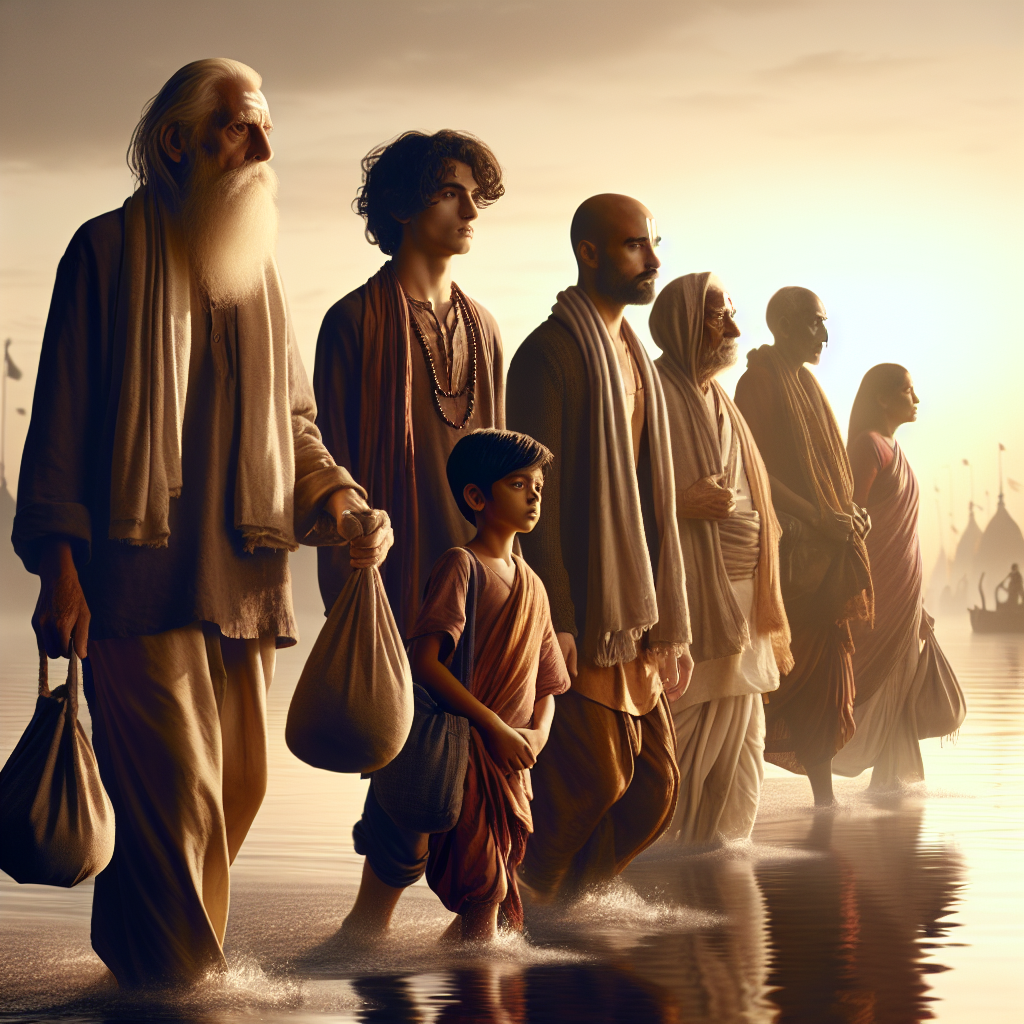[ad_1]
The Journey of Devotion: Personal Stories from Mahakumbh Pilgrims
India is a land of spirituality, where ancient traditions and sacred rituals converge to create a vibrant tapestry of faith. Among the most revered of these traditions is the Kumbh Mela, a colossal religious gathering that takes place every 12 years at four sacred riverbanks in India: Haridwar, Allahabad (Prayagraj), Nashik, and Ujjain. The Mahakumbh, occurring every 144 years, is the largest of these festivals, attracting millions of pilgrims from all walks of life. Beyond the sheer scale of the event, it is the personal stories of devotion and spiritual awakening that leave an indelible mark on participants’ hearts and minds.
Awakening Through Adversity
For many, the journey to the Mahakumbh begins long before the first dip in the holy waters of the Ganges, Yamuna, Godavari, or Shipra. Take the story of Ramesh, a once-disillusioned banker from Mumbai. Overwhelmed by the pressures of his high-paced career, Ramesh found himself in a rut. In search of deeper meaning, he decided to make his pilgrimage to Allahabad during the Mahakumbh. The journey was not easy; navigating crowded trains and streets filled with fellow pilgrims tested his resolve. However, as he arrived at the riverbank and witnessed the fervor of devotion around him, Ramesh experienced an unexpected awakening.
“I felt a wave of peace wash over me,” he recounts. “Despite the chaos, it was as if everyone was connected by an unspoken bond of faith. My worries faded away as I immersed myself in the holy waters.” For Ramesh, this pilgrimage was more than just a physical journey; it was a reclaiming of his spiritual self.
The Generational Saga
For others, the Mahakumbh symbolizes a familial legacy of devotion. Anjali, a young woman from Varanasi, spoke of accompanying her grandmother, who has attended every Kumbh Mela since her youth. Anjali recalls, “My grandmother would tell me stories of her experiences—the sights, the sounds, the people she met. It inspired a sense of duty in me to carry on this tradition.”
During the Mahakumbh, Anjali found herself listening to stories from fellow pilgrims, each with unique tales of faith and transformation. “It’s a melting pot of experiences. You could see a farmer, a scholar, and a daily wage worker sharing their journeys over a simple meal. It made me realize the beauty of our shared humanity,” Anjali reflects.
Healing and Renewal
The Mahakumbh also serves as a powerful platform for healing, both physical and spiritual. Take the poignant story of Rajesh, who had been grappling with illness and loss. Encouraged by his family, he made the arduous journey to Ujjain. "I was not sure what I was searching for," Rajesh admits, his voice laden with emotion. “But as I stepped into the river, tears streamed down my face. I felt a release—a catharsis that I had longed for.”
Rajesh’s experience at the Kumbh laid the foundation for his transformation. Connecting with fellow pilgrims who shared their stories of resilience and strength, Rajesh began to understand the deeper aspects of suffering and recovery. “The Kumbh is like a mirror reflecting our inner struggles, guiding us toward healing and renewal,” he says.
A Celebration of Diversity
The Kumbh Mela is a vibrant confluence of diverse cultures, languages, and traditions. Each pilgrim’s experience is colored by the rich tapestry of their backgrounds. A group of women from rural Maharashtra exemplified this diversity. They journeyed together, breaking societal barriers and sharing their aspirations for their families as they made their way to the festival.
"The Kumbh felt like our collective triumph," one of the women shared. "In our small village, we are often overlooked, but here, we are seen as equals among millions." This shared camaraderie creates a sense of unity that transcends social and economic divides, where people come together, united in their quest for spiritual enlightenment.
Conclusion: The Eternal Cycle
As the sun sets on the banks of the Ganges, a sense of tranquility envelops the pilgrims. The Mahakumbh is not merely a ritual; it is a journey marked by personal growth, collective experience, and a deeply rooted sense of belonging. Through the myriad stories of love, loss, resilience, and renewal, the Mahakumbh serves as a reminder that the path of devotion is as diverse as the rivers that flow through India—each story unique, yet fundamentally intertwined in the eternal cycle of faith and humanity.
For those who embark on this sacred journey, the Mahakumbh is not simply an event; it’s the beginning of an ongoing metamorphosis, where every dip in the holy river becomes a step towards inner peace and enlightenment. The essence of the Kumbh lies not only in the water but in the unbreakable spirit of its pilgrims, each of whom carries forth their personal stories of devotion, forever tracing the lines of faith in their hearts.
[ad_2]

